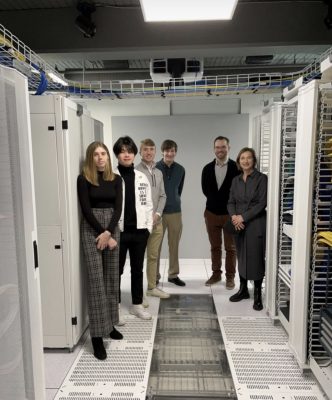 On Friday, February 17th, a group of EUROBIZ students, accompanied by Prof. Gerlinde Berger-Walliser, the Co-Director of the program, visited Legrand in West Hartford. The excursion offered not only an exploration of the company, but also a wonderful opportunity to meet a variety of managers and employees and to glimpse career opportunities for the future. The visit was expertly arranged by Kelly W. Kennedy who summarized the visit as follows on her LinkedIn account:
On Friday, February 17th, a group of EUROBIZ students, accompanied by Prof. Gerlinde Berger-Walliser, the Co-Director of the program, visited Legrand in West Hartford. The excursion offered not only an exploration of the company, but also a wonderful opportunity to meet a variety of managers and employees and to glimpse career opportunities for the future. The visit was expertly arranged by Kelly W. Kennedy who summarized the visit as follows on her LinkedIn account:
The University of Connecticut School of Business is grateful for our strong partnership with Wiremold in West Hartford, Connecticut (Legrand North America). Their team spent a fantastic day with our Eurobiz students last week. The program was designed to educate our fluent German-speaking students on global business and demonstrate the critical work done in this industry. This was a very hands-on experience, where students could view the manufacturing operation on the plant floor and their tech and power solutions in the Wiremold Experience Center. We are incredibly grateful for the team that put together the day that exceeded our expectations. Legrand prides itself on” transforming the spaces where people live, work and meet, with innovative and sustainable electrical and digital infrastructures.” Thank you- The Wiremold Company Legrand Judy Travers Adonica Walker Lawrence Gerlinde Berger-Walliser Anke K. FingerRobert Sauer, M.S.#urobiz #uconnbusiness #careerdevelopment #manufacturingindustry #connecticutjobs
The EUROBIZ program will regularly organize company visits in the future.
 As the EUROBIZ program grows, we are featuring short portraits of EUROBIZ students who are currently in Germany and have successfully secured their internships for the second half of their stay. Our first portrait presents Sophia Ruelle who is working for
As the EUROBIZ program grows, we are featuring short portraits of EUROBIZ students who are currently in Germany and have successfully secured their internships for the second half of their stay. Our first portrait presents Sophia Ruelle who is working for 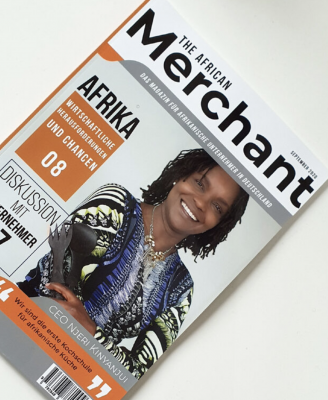 Celebrating the launch of a new business magazine in Düsseldorf, the
Celebrating the launch of a new business magazine in Düsseldorf, the 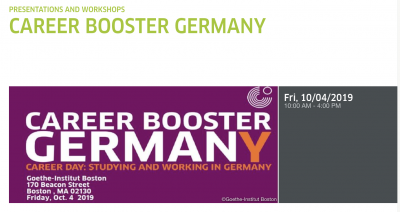 Find out more about opportunities for studying and working in Germany and join the Career Day Germany! The Goethe-Institut Boston invites teachers and students of high schools and colleges to Career Day Germany on Friday, Oct. 4 between 10:00 am and 4:00 pm.
Find out more about opportunities for studying and working in Germany and join the Career Day Germany! The Goethe-Institut Boston invites teachers and students of high schools and colleges to Career Day Germany on Friday, Oct. 4 between 10:00 am and 4:00 pm.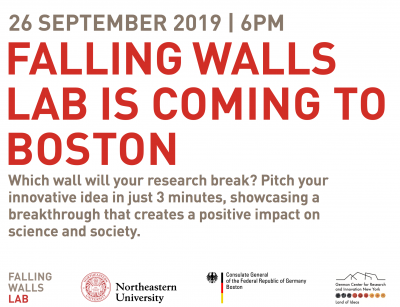 Northeastern University, the German Consulate in Boston and the German Center for Research and Innovation in New York are delighted to host Falling Walls Lab Boston on September 26, 2019, at 6 p.m.
Northeastern University, the German Consulate in Boston and the German Center for Research and Innovation in New York are delighted to host Falling Walls Lab Boston on September 26, 2019, at 6 p.m.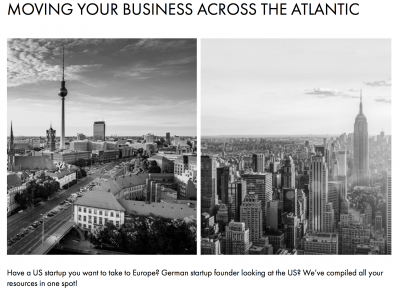 The German Innovation Center just published a
The German Innovation Center just published a